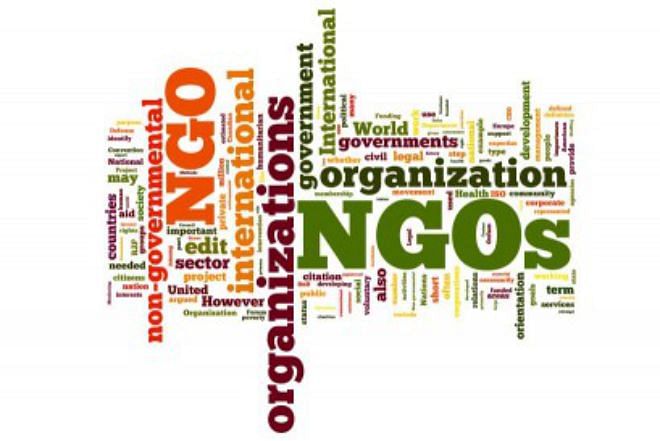Ensuring governance in NGOs

NGOs or civil society organisations, which initially focused on relief and rehabilitation activities in Bangladesh, have turned out today to be one of the most important contributors in the development activities, irrespective of the argument that their functions should have primarily focused on promoting democratic institutions instead. These days, NGOs or civil society organisations are not only working in the remote areas with the help of foreign donors but also establishing their eminent presence in the capital.
Affiliation of local and multinational conglomerates with such organisations, as part of their corporate social responsibilities, is also noticeable. Such widespread involvement of NGOs attracts attention from stakeholders for ensuring transparency, accountability and efficiency in their 'public service' operations.
The legal framework for NGOs in Bangladesh has been criticised for being narrowly focused on the foreign funding of a handful of NGOs. It does not tend to ensure accountability of a large number of NGOs or civil society organisations that do not receive foreign funds but are capable of affecting public interest equally. The number of Bangladeshi NGOs relying on domestic funding has grown significantly in the recent years and thus the issue of realigning the current regulatory regime has come forward.
This does not mean that there has not been any overseeing authority for such NGOs operating on the basis of contribution from the mass people. Such NGOs generally have to be registered and operated in accordance with the Voluntary Social Welfare Agencies (Regulation and Control) Ordinance 1961; and the Department of Social Services is supposed to oversee, among its other responsibilities, the activities of such NGOs.
The regulatory mechanisms which are in place for NGOs operating on public subscriptions are only concerned with the maintenance and returning of audited accounts and annual reports. The existing system thus narrowly focuses on financial figures. In other words, it is only concerned about the accounting of how money is spent but not with the accountability of it or ensuring governance. The founders and/or the board members of such NGOs, who would be indulging in the unscrupulous trend of gaining excessive benefits for themselves disproportionate to the operation of the NGO, would not be legally culpable so far as they declare their expenses in the audited accounts. But such trend would completely go against the moral claim as well as the legitimate expectation of the subscribers who entrusted their money with NGOs to promote social welfare. It is unfortunate that the promoters of NGOs, who may at the end of the day make a toast to so called 'alleviation of poverty' by making personal profit out of selling poverty, cannot be held legally responsible under the current regulatory framework of the country.
These mechanisms in place are incapable of ensuring and overseeing internal governance and external accountability of such NGOs. The current legal framework in Bangladesh fails to meet international good practice standards as well. There is a necessity for legal rules in the form of statutory regulations or governance code, as opposed to moral claim, for ensuring internal governance of the NGOs or civil society organisations, especially with respect to the composition, duties and powers; independence and accountability; flexibility and allowances of board members - the breach of which should have been redressible by law.
There should be mechanisms, given the fiduciary nature of their obligations, especially to combat conflicts of interest, self-dealing, excessive benefits, and to promote the efficiency and due diligence of the board members of the NGOs at the same time. Furthermore, the tax regime of the NGOs need a overhaul with specific attention to the issues of taxability in respect of their income generating activities and the tax deductibility that the donors or subscribers might be entitled to for their contributions to the NGOs.
Keeping up with the recent trend of founding and operating NGOs or civil society organisations based on subscriptions from the mass people, it is high time a body was formed to reformulate legislative provisions and produce regulations or code of governance with enforceable mechanisms. It is often feared by the civil society that government will invoke restrictive laws and regulations and impose onerous registration and tax requirements in the name of ensuring accountability and transparency.
However, formulation and implementation of such mechanisms should not threaten the sustainability of NGOs or civil society organisations which have the potential of contributing significantly to the welfare of the general mass. Thus it is advisable that a committee should be formed comprised of all the stakeholders for undertaking such essential reform task. Moreover, having a coherent governance code is likely to ensure that the government treats all such organisations equally without having the option of playing favourites by labelling NGOs 'good' or 'bad' for gaining undue political benefits.
The writers are Associates at Legacy Legal Corporate

 For all latest news, follow The Daily Star's Google News channel.
For all latest news, follow The Daily Star's Google News channel. 



Comments